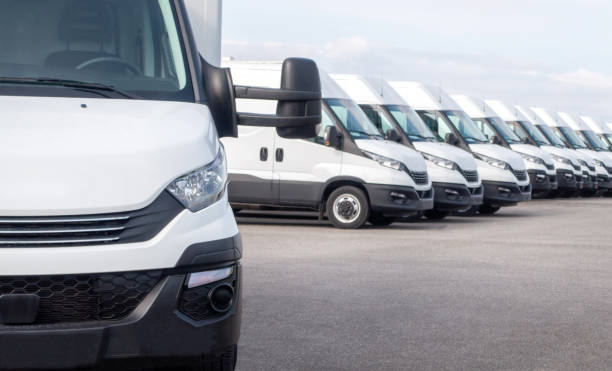
ATS Euromaster has seen a significant uplift in the requirement for Class 7 MOTs compared with 2020 as fleet managers adapt to longer commercial vehicle lifecycles.
Class 7 vans are those commercial vehicles weighing between 3000-3500kg.
With the squeeze on new commercial vehicle availability as a result of the war in Ukraine combined with the shortage of semiconductors since 2020, fleet managers have been adapting fleet lifecycles by making their vans work longer before replacement.
The Association of Fleet Professionals recently reported that its members were seeing extensions that ranged from five to eight years before replacement. As a result, fleet managers need to adapt their management of service, maintenance and repair spending and manage MOT requirements.
“We’ve been watching the MOT demand for Class 7 vehicles increase year on year, said Mark Holland, operations director at ATS Euromaster.
“In 2021 we saw a 70% uplift in MOT class 7 volumes compared with 2020 volumes. Then 2022 delivered an 86% uplift on 2021 volumes. So demand has been growing at a staggering volume as the commercial vehicle fleet ages, but what we are also witnessing is changing attitudes to fleet management.
How well do you really know your competitors?
Access the most comprehensive Company Profiles on the market, powered by GlobalData. Save hours of research. Gain competitive edge.

Thank you!
Your download email will arrive shortly
Not ready to buy yet? Download a free sample
We are confident about the unique quality of our Company Profiles. However, we want you to make the most beneficial decision for your business, so we offer a free sample that you can download by submitting the below form
By GlobalData“For example, if a van comes in for new tyres, we may also be asked to do a vehicle health check at the same time to identify any areas of concern that might keep the vehicle off-road.
“It’s a typical example of fleet managers becoming more adept at running older and higher mileage vehicles.”
Latest Government figures show that nearly 40% of Class 7 vehicles fail their MOT. Lamps, reflectors and electrical equipment lead the way as the most likely cause of failure (20.35%), followed by brakes (15.41%), then suspension (10.24%).
In terms of the greatest percentage of dangerous defects, brakes at 44.58% and tyres (35.79%) were a long way ahead of any other defects.
“These figures correlate very closely with what we are seeing in our MOT bays,” said Holland. “The vans are being worked extremely hard and with much of it final mile delivery work, this involves plenty of component sapping kerb bouncing.
“We would urge fleet managers, if they are not doing it already, to consider planned maintenance as vehicle replacement cycles lengthen to prevent the costliest item of all – a vehicle off road.”
IVECO to produce battery electric vehicle and fuel cell electric vehicle







